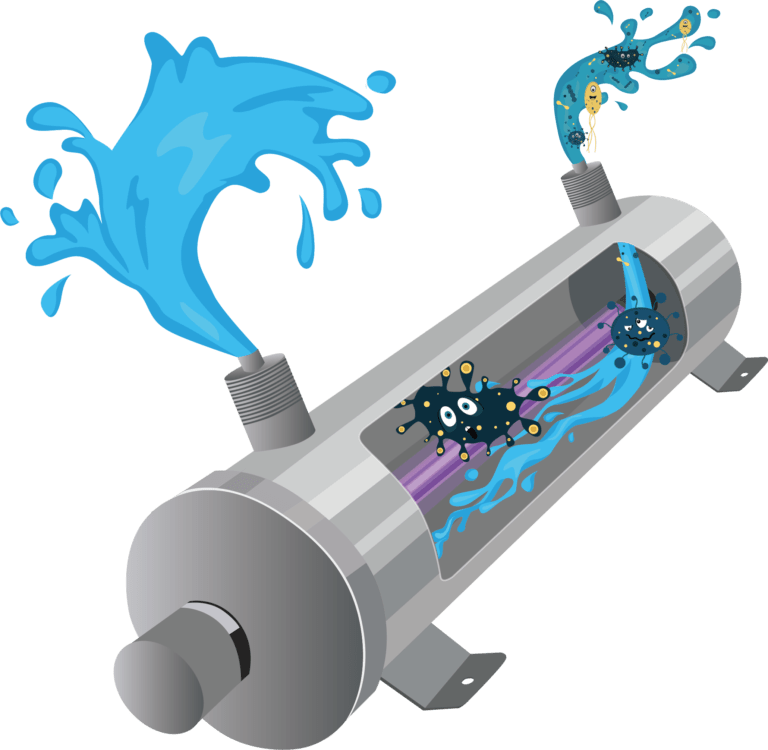Education
How Does UV Water Disinfection Work?
History
Is ultraviolet (UV) water disinfection a new technology, just recently discovered, and perhaps not yet scientifically proven? Not at all. From as far back as the late 1800s it was discovered that ultraviolet radiation from lamps could be used as a process to kill germs. Since then, disinfection of drinking water using UV lamps has been practised since the beginning of the 20th century.
In 1998 it was discovered that UV water disinfection was actually more effective than previously thought against protozoa, such as Cryptosporidium and Giardia, which are known to cause waterborne outbreaks of disease. This led to a renewed interest in UV disinfection for water treatment. In 2001, there were over 6,000 UV water treatment plants operating in Europe.
UV-disinfection offers a 99.99% reduction of organisms capable of infection.
Did you know?
New York City has one of the world’s largest UV Drinking Water Disinfection Plants.
How can a UV lamp be used to disinfect drinking water?
There are two ways of removing harmful microorganisms from water – with a physical process or with a chemical process. Using a UV lamp to inactivate microorganisms is a physical process.
UV light is a form of light that is invisible to us as humans. One unique thing about UV light is that at specific wavelengths it is capable of inactivating microorganisms. UV light alters the DNA of microorganisms and makes them sterile, meaning they are no longer able to replicate and no longer able to infect us.

Did you know?
UV light has proven effective in inactivating many microorganisms, including those that are known to cause cholera, polio, typhoid, hepatitis, and other diseases.
How can we use a UV lamp to make our tap water in Thailand perfectly safe to drink?
The process is simple, rapid, and very effective. We install the UV lamp in a UV reactor, which is typically a stainless-steel tube with an inlet and outlet. As water passes through the UV chamber it is exposed to UV light from the lamp. This radiation does not affect the taste or smell of the water and does not alter the chemical composition of the water. But it will effectively cause a genetic change in any harmful microorganisms present in the water, making them sterile, and no longer able to replicate.
A microorganism that is no longer able to replicate can no longer harm humans and will pass right through our systems without making us sick.

What are the main benefits of UV water disinfection?

Safe
- UV-disinfection offers a 99.99% reduction of organisms capable of infection.
- The process does not use any chemicals or create any by-products.
- UV light can be used to inactivate microorganisms that have been found resistant to Chlorine, such as Cryptosporidium and Giardia.
- No need to handle dangerous chemicals.
Did you know?
Some reverse osmosis water filters waste up to 80% of the water.
Eco-friendly
- No removal of beneficial minerals
- The process does not use any chemicals or create any by-products.
- It does not waste any water - all the water that passes through the system is effectively treated.
- The energy requirements are low - a UV lamp uses about the same amount of energy as an incandescent lamp.


